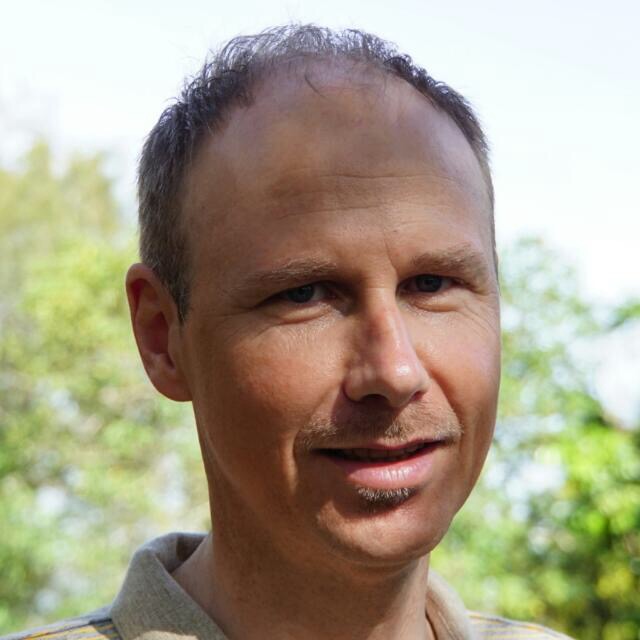IEEE Distinguished Lecture: “Statistical Inference through Sparse Sensing”

Speaker: Geert Leus, Delft University of Technology, The Netherlands
Location: Salón de actos, Ibaeta building.
Time and Date: January 23rd, 9:30-10:30
Abstract: Ubiquitous sensors generate prohibitively large data sets. Large volumes of such data are nowadays generated by a variety of applications such as imaging platforms and mobile devices, surveillance cameras, social networks, power networks, to list a few. In this era of data deluge, it is of paramount importance to gather only the data that is informative for a specific task in order to limit the required sensing cost, as well as the related costs of storing, processing, or communicating the data. The main goal of this talk is therefore to present topics that transform classical sensing methods, often based on Nyquist-rate sampling, to more structured low-cost sparse sensing mechanisms designed for specific inference tasks, such as estimation, filtering, and detection. More specifically, we present fundamental tools to achieve the lowest sensing cost with a guaranteed performance for the task at hand. Applications can be found in the areas of radar, multi-antenna communications, remote sensing, and medical imaging.
“Caching for 5G via Reinforcement Learning of Space-time Popularities”

Speaker: Georgios Giannakis, University of Minnesota, USA
Location: Salón de actos, Ibaeta building.
Time and Date: January 23rd, 11:00-12:00
Abstract: Small base-stations (SBs) equipped with caching units have potential to handle the unprecedented demand growth in heterogeneous networks. Through low-rate, backhaul connections with the backbone, SBs can prefetch popular files during off-peak traffic hours, and service them to the edge at peak periods. To intelligently prefetch, each SB must learn what and when to cache, while taking into account SB memory limitations, the massive number of available contents, the unknown popularity profiles, as well as the space-time popularity dynamics of user file requests. In this talk, we adopt local and global Markov models to capture user requests, and introduce a reinforcement learning (RL) framework for finding the optimal caching policy even when the transition probabilities involved are unknown. Joint consideration of global and local popularity requests along with cache-refreshing costs allow for a simple, yet practical asynchronous caching approach. The novel RL-based caching relies on a Q-learning algorithm to implement the optimal policy in an online fashion, thus enabling the cache control unit at the SB to learn, track, and possibly adapt to the underlying dynamics. A linear function approximation of the proposed Q-learning scheme is further introduced, offering faster convergence as well as reduced complexity and memory requirements.
“Denoising of Aligned Genomic Data”

Speaker: Idoia Ochoa, University of Illinois at Urbana-Champaign, USA
Location: Salón de actos, Ibaeta building.
Time and Date: January 23rd, 12:15-13:15
Abstract: Sequencing data have expanded our understanding of genetic material and their role in biological processes, opened up new areas of biological inquiry, and are guiding the trajectory of modern biomedical research. Raw sequencing data comprise sequences of nucleotide bases called “reads”, which are accompanied by sequences of quality scores that indicate the sequencing machine’s confidence in the base calls making up the reads. However, the genomic sequencing process is imperfect and can result in reads containing various types of noise including base substitutions, insertions, and deletions (INDELs). These errors can affect downstream applications, with an important application being variant calling, or the identification of genetic polymorphisms unique to individuals. Variant identification from whole genome sequencing data is increasingly being used to diagnose, gain biological insight to, and design treatments in the clinical setting, especially in the field of rare genetic disease research. Thus, accuracy of variant identification is paramount.
We propose a denoiser, SAMDUDE, which operates on aligned genomic data in order to improve variant calling performance. In contrast to previously proposed denoisers, SAMDUDE denoises the reads while updating the quality scores accordingly. To highlight the potential utility of simultaneous base denoising and quality score updating in a clinical setting, we perform denoising and variant calling comparisons on human data sets. Denoising human data with SAMDUDE resulted in improved variant identification in both individual chromosome as well as whole genome sequencing (WGS) data sets. In the WGS data set, denoising led to identification of almost 2,000 additional true variants, and elimination of over 1,500 erroneously identified variants. In contrast, we found that denoising with other state-of-the-art denoisers significantly worsens variant calling performance.


